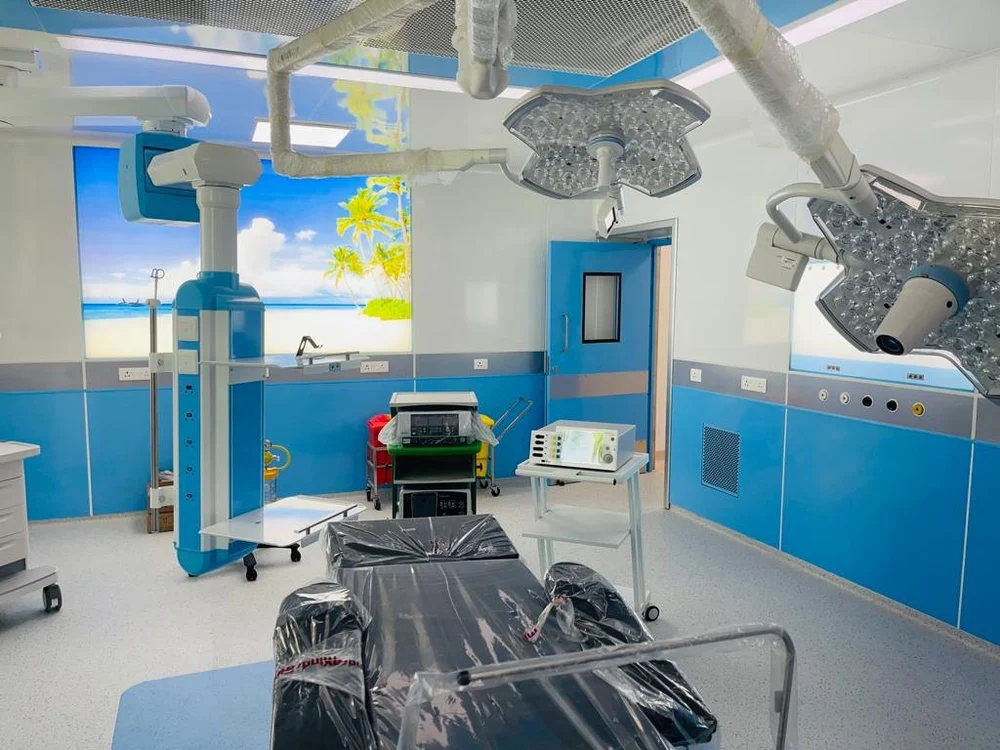
Operation Theater Services

An operation theater (OT), or operating room (OR), is a specialized facility within a hospital designed for performing surgical procedures in a highly controlled, sterile environment. The primary objective of OT services is to ensure patient safety and comfort during lifesaving or life-enhancing surgeries. This controlled setting minimizes the risk of infection and supports the optimal conditions needed for surgical success. The OT is equipped with advanced medical technology and tools, allowing healthcare professionals to carry out complex procedures while promoting effective healing and recovery for patients.
Key Features and Equipment of an Operation Theater
Hygiene and Sterility
To prevent infections, OTs adhere to stringent hygiene protocols. The room is divided into specific zones, including preparation areas, sterile fields, and disposal zones. Personnel must follow rigorous sterilization procedures, including the use of sterile gowns, gloves, and masks.
Temperature Control
Maintaining a stable, cooler temperature in the operating theater is essential for patient comfort and the proper functioning of surgical instruments. This cooler setting not only ensures a comfortable environment for the surgical team but also helps minimize microbial growth.
Emergency Preparedness
OTs are equipped with emergency equipment and supplies, including defibrillators, emergency medications, and resuscitation tools. This ensures that the team is prepared to handle any unexpected complications or critical situations that may arise during surgery.
Safety and Monitoring Systems
Advanced monitoring systems continuously track vital signs and other critical parameters during surgery. These systems ensure that any changes in the patient’s condition are promptly detected and addressed, helping to maintain patient safety and enhance surgical outcomes.
Operation Theater Services
Preoperative Preparation
Prior to surgery, patients undergo thorough assessments to ensure they are fit for the procedure. This includes preoperative counseling, anesthesia evaluations, and necessary diagnostic tests. The OT staff prepares the environment, ensuring that all equipment is sterilized and functioning correctly.
Surgical Team Coordination
Effective communication and coordination among the surgical team members, including surgeons, anesthesiologists, nurses, and surgical technologists, are essential for successful outcomes. The team collaborates to plan the procedure, manage the patient’s care, and address any intraoperative issues.
Postoperative Care
After the surgery, patients are transferred to the recovery area where they are closely monitored for any immediate postoperative complications. The surgical team provides detailed instructions for postoperative care, including pain management, wound care, and follow-up appointments.
Continuous Improvement
OT services include continuous quality improvement through regular staff training and certification, adherence to updated safety protocols, and the integration of new technologies and techniques. These efforts aim to enhance patient care and outcomes by ensuring the highest standards of practice.
Patient Education and Support
Offering education and emotional support to patients and their families is crucial in OT services. This involves explaining the surgical process, answering questions, and providing reassurance to ease anxiety and ensure informed consent, helping patients and families feel well-prepared and supported.
Documentation and Record-Keeping
Accurate documentation of the surgical procedure is crucial, including details on the patient’s condition, surgical approach, and any complications. This comprehensive record ensures precise medical documentation and supports effective future medical care, helping to track progress and inform ongoing treatment.
Overall, operation theater services are integral to the surgical process, encompassing everything from preoperative planning and surgical execution to postoperative care and continuous quality improvement. By maintaining high standards of hygiene, safety, and coordination, OTs play a vital role in ensuring successful surgical outcomes and enhancing patient recovery.
